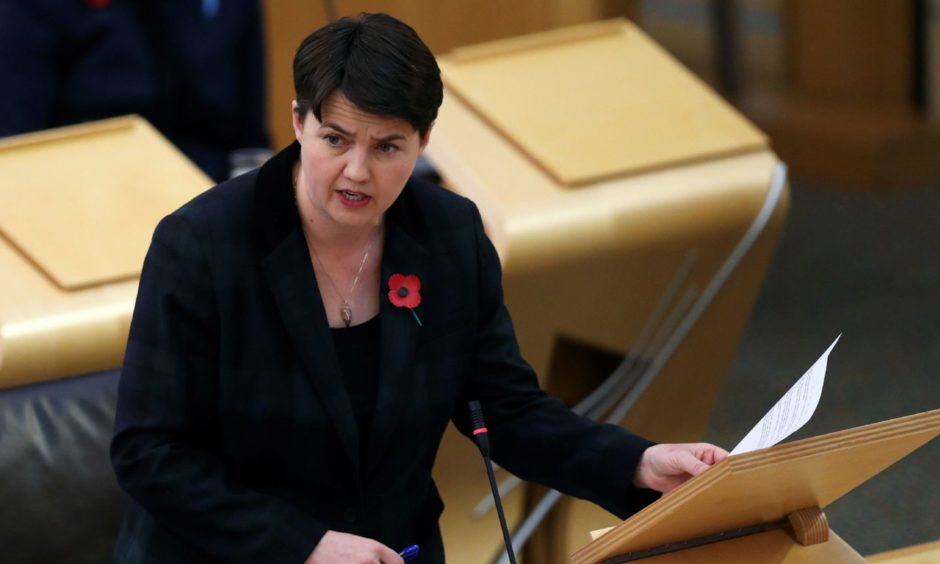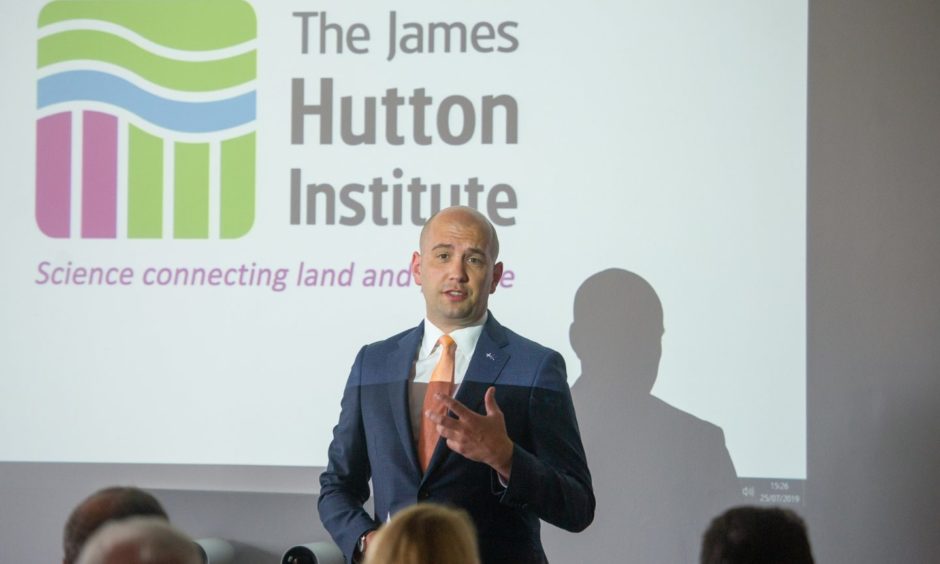Douglas Ross has paved the way for a new battle over business rates by ordering his party to perform a U-turn on a controversial revaluation delay.
The Scottish Conservative leader said he had “listened carefully” to firms who have pleaded with ministers not to postpone the next rates revaluation from 2022 to 2023.
Tory sources said Mr Ross had overruled Holyrood leader Ruth Davidson, who previously suggested the delay during exchanges with First Minister Nicola Sturgeon.
Speaking to this newspaper, the Moray MP said his decision was made after hearing the concerns of many north-east businesses, who have long deemed the last revaluation in 2017 to have been unfair, and are opposed to an additional year under those rates.
Mr Ross said: “Businesses have never faced so much hardship than right now and problems with business rates have plagued the north-east in particular for years now.
“We have listened carefully to the views of business and their representative bodies, who have been clear that they do not want to see the next revaluation delayed.
“A delay would continue to see many businesses, particularly in the north-east, continuing to pay unfair taxes.”
Mr Ross added: “We will vote against the SNP’s proposed delay and we hope they change their mind and start backing business, instead of leaving them on the sidelines.”
Covid crisis a factor
The Tories will now fight to retain a 2022 revaluation, but to move the tone date from 2020 to 2021.
Scottish ministers said the market needed time to stabilise following the coronavirus crisis, and questioned whether it would be practical to carry out the work required for an earlier revaluation, while the country still faced restrictions.
A furious row erupted in 2017 after many north-east companies were left facing crippling bills due to a revaluation calculated in early 2015, before the full scale of the impact of the last oil price crash had emerged.
In order to avoid similar shocks in future, the Barclay Review recommended revaluations take place every three years instead of every five, and that they be based on rents one year earlier, instead of “tone dates” which were several years earlier.
The next revaluation – which determines how much businesses pay in non-domestic rates – was due to be in April 2022, based on values in April this year.
However, in order to allow the market to recover from coronavirus and Brexit, the Scottish Government postponed that work and recently announced it would instead legislate to make the next revaluation date in April 2023, and that the valuations would be based on figures for April 2022.
Business leaders have been split on the move, with the Scottish Chambers of Commerce saying it was “profoundly concerned”, but the Federation of Small Businesses declaring it “broadly supported” a delay.
‘Firms need decisive action’
Aberdeen and Grampian Chamber of Commerce research and policy manager Shane Taylor wrote this month: “Right now, firms across Scotland need decisive action to bring business rates bills in line with the harsh economic reality we face, not further delay.”
Holyrood’s local government committee considered the issue on Wednesday, voting by four to three to approve the government’s plans, ahead of a final decision by parliament.
Public Finance Minister Ben Macpherson told the MSPs the pandemic had disrupted the ability of assessors to carry out a revaluation.
He added: “I believe it is important that we give the market time to stabilise, to allow the evidence to catch up with the reality and to identify the correct ‘winners and losers’, rather than risk using structurally deficient evidence.
“And indeed when it comes to considering the winners and losers, for an upcoming revaluation, it is undeniably clear from the written evidence provided ahead of today’s meeting that the overwhelming priority for the Scottish business community is certainty over the future of reliefs.
“That is where our focus should be after today’s decision have been taken.”
Decision ‘will be met with deep regret’
Shane Taylor, research and policy manager at Aberdeen and Grampian Chamber of Commerce, said: “Although it was clearly not unanimous, the decision made by the Local Government and Communities Committee today to approve the Scottish Government’s plan to delay the next rates revaluation by a further year will be met with deep regret from businesses in the North-east, and for many of the sectors across Scotland hardest hit by Covid-19.
“We need decisive action from government on rates, not delay. Chambers of Commerce argued for a sensible compromise solution to allow the revaluation to take place as planned in 2022, which was supported by many in the business community across the hospitality sector, and by key organisations like the Scottish Property Federation and Scottish Seafood Association.
“The Scottish Government must urgently set out its plan to support hard-hit regions, like the North-east, and the worst-hit sectors who will continue to pay rates based on inaccurate values until 2023.
“We must ensure that the outdated and inflexible business rates system doesn’t stand in the way of the crucial work to deliver an economic recovery in the months ahead.”



